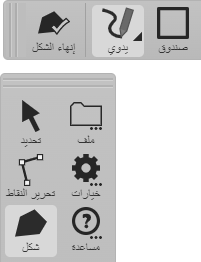I think it's important to translate programs into many different languages. That makes it easier for people in different countries to learn and use these programs. Unfortunately, it hasn't been practical to translate Omber to other languages.
The first problem is cost. Translating programs cost money. When I've translated websites to other languages in the past, it hasn't really increased the number of users much, so translating Omber wouldn't really be able to recoup the cost of the translations.
The next problem is time. It takes a huge programming effort to prepare an app for translation. Translating Omber is particularly hard. Other apps just use a bunch of abstract icons for their user interface. I can never understand what the icons in other apps mean, so I designed Omber to have text for all of its icons. It also has many help screens and a tutorial system. These help screens make use of many diagrams and animations, which would also need to have different versions made for different languages. Preparing all the text in all of these different places to be translated would be a huge effort.
Then, there is the issue of software evolution. When I have the time, I go in and tinker on Omber and try to add new features. Every time a new button or screen is added to the program, these new elements have to be translated. Hiring out a bunch of translators to translate a few words of text is a real hassle. On job contracting websites, translators would end up spending more time bidding for the translation work than on actually doing the translation. All this hassle would make me less able to add new features to Omber, and many of these new features would not end up being properly translated to other languages.
Finally, there are compliance issues. When an app is translated into other languages, you are considered as trying to sell to countries where those languages are spoken. With European countries in particular, you are expected to comply with the laws of those countries when you try to sell things to those countries. Omber is just a small app, and I don't have the time to study the law regarding apps in all those countries to ensure that the app is legal with regards to privacy and other restrictions, so it's easier to just keep the app in English and say that I'm not trying to sell my app to those countries.
These are the main reasons that have prevented me from translating Omber to other languages. I have always wanted to translate Omber to other languages, but it just hasn't been practical.
I started rethinking my stand last year. Omber started getting a lot of users from Saudi Arabia for some reason. It looked like it was just a temporary spike. It seemed like it might just be some schools using the app temporarily for remote learning when students can't get to computer labs (since Omber is available for free on so many platforms, it's great for this purpose) and that usage would die down later. Still, I felt guilty because the app didn't even support Arabic text. What's the point of learning a drawing app if you can't use it for making posters and other art in your own language? It's possible that Omber was only being used in English schools, but it still made me feel bad. Fortunately, I had been studying how to add support for complex scripts like Arabic to Omber for many years, so I was able to add that feature in quickly (though it has taken an additional year to fully flesh out and stabilize support for it).
The number of users from Saudi Arabia eventually went down, as expected, and I didn't think about it much again. But at the start of this year, the number of users from Saudi Arabia went up again. This caused me to think about how all those users were making an effort to use an app despite the fact that it was in English while I wasn't making even a little effort to make the app more suitable for them. So I decided to investigate if I could meet the app's non-English users halfway somehow. This is what I'm doing:
- Translating the app won't recoup the cost of the translations, but I'll still try translating to a couple of languages where there are a significant number of Omber users. Setting up the tools for the translation will take a significant effort, but I'll hopefully be able to reuse those tools for other projects
- The app will continue to be an English app with an English app listing. Some of the buttons for basic functionality will be translated though. Help screens, diagrams, dialog boxes, etc. will remain in English. So the final app will be a mix of English and some other languages.
- Google has made a translation service available through its Play Console where app developers can submit small translation jobs of even only a few words. I'm not sure about the quality of the translations. The translation service notably doesn't even have a way to submit translation notes to help guide translators on how certain words should be translated. But this translation service seems like it will work well with how Omber is developed even if the translation quality isn't great
- Omber has so few users that I doubt anyone cares if I'm not entirely compliant with European regulations, but just to be safe, I will only target languages used in non-European regions like Quebec and Saudi Arabia.

No comments:
Post a Comment